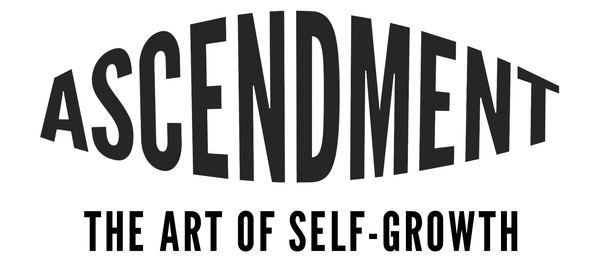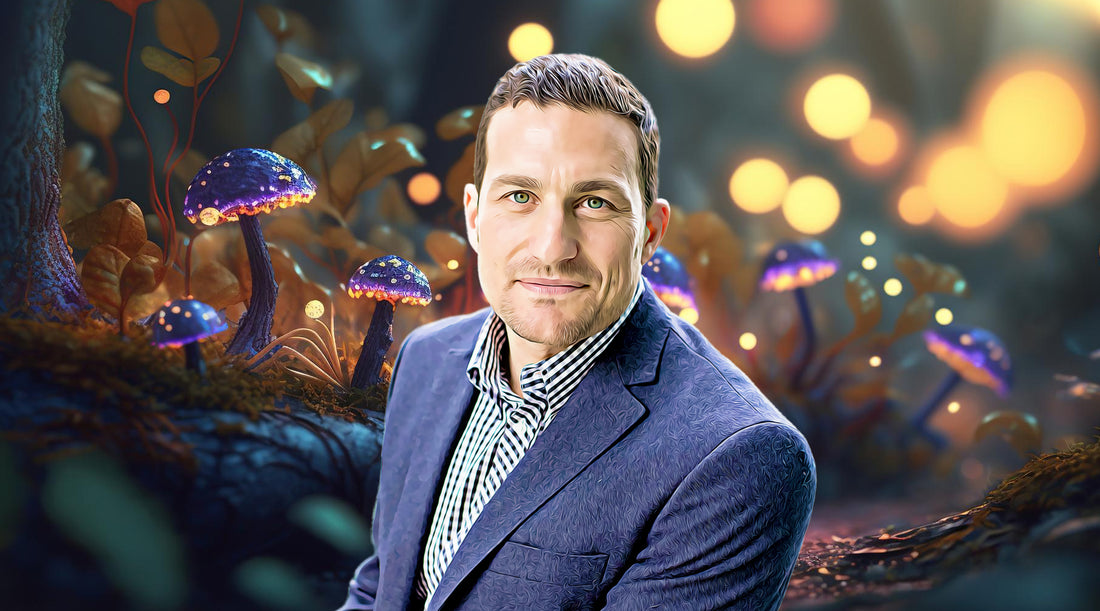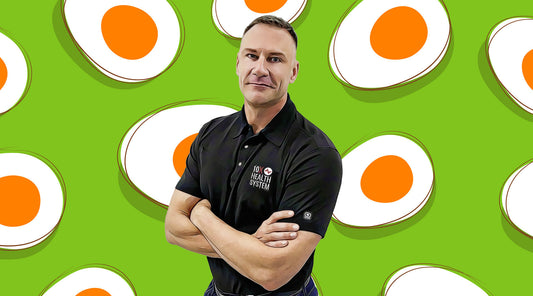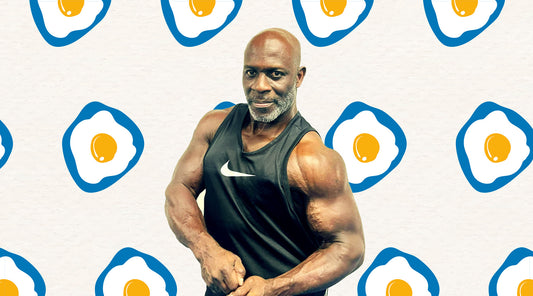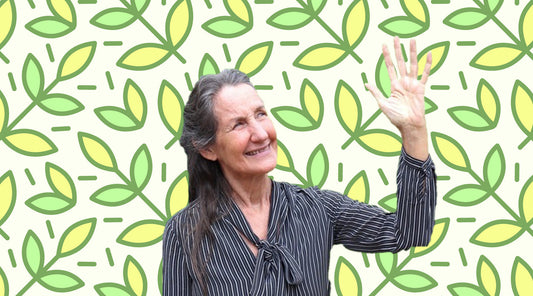Psychedelic drugs such as psilocybin have the potential to relieve major depressive disorder. Neuroscientist Andrew Huberman is particularly excited about the promise psilocybin is displaying in clinical trials. But just how magic are these mushrooms and can they actually relieve depression?
What is Psilocybin?
Psilocybin is a naturally occurring psychedelic compound found in certain species of mushrooms, notably those belonging to the Psilocybe genus. Psilocybin is present in different types of ‘Magic Mushrooms’.
When ingested, psilocybin is converted into psilocin in the body. Psilocin interacts with serotonin receptors in the brain. This interaction leads to altered perception, mood changes, and profound psychedelic experiences depending on the dosage.
Can Psilocybin Help Depression?
A category of treatments that’s being actively explored now in laboratories and in the psychiatry realm are psychedelics. Psilocybin in particular is one of these psychedelic drugs that is being most intensely and actively pursued for its capacity to treat major depressive disorder.

Leading figures in the field of psychedelics and psychiatry are looking at psilocybin’s ability to rewire neural circuits and alleviate depression. There have been anecdotal data or evidence over the years that psilocybin has this capacity, but what do the clinical trials say?
Clinical Trials of Psilocybin for Depression
Andrew Huberman notes that one of the most profound studies looking at the effects of Psilocybin was a study published in May 2021 in the Journal of the American Medical Association Psychiatry entitled ‘Effects of Psilocybin Assisted Therapy on Major Depressive Disorder, a Randomized Clinical Trial.’
The clinical trial was conducted at the Center for Psychedelic and Consciousness Research at Johns Hopkins Bayview Medical Center in Baltimore, Maryland. 27 adults aged 21 to 75 years with a Major Depressive Disorder diagnosis, not currently using antidepressant medications, and without histories of psychotic disorder, serious suicide attempt, or hospitalization were eligible to participate.
Participants were given two psilocybin sessions. The dose in the first session was 20mg of Psilocybin per 70kg of body weight and the second was 30mg per 70kg of body weight. 20mg is considered as a medium dose and 30mg is considered as a high dose.
During the session, participants were instructed to lie on a couch in a living room–like environment, and facilitators encouraged participants to focus their attention inward and stay with any experience that arose. To enhance inward reflection, music was and participants were instructed to wear eyeshades and headphones.
The Results
The results of the clinical study stated “that psilocybin-assisted therapy was efficacious in producing large, rapid, and sustained antidepressant effects in patients with major depressive disorder.
Discussing the trial in more detail, Andrew Huberman said: “What’s really striking about this study is that there was a very significant improvement in mood and affect and relief from depressive symptoms in anywhere from 50 to 70% of the people that were subjects in the study that received the psilocybin treatment.”
He continued: “Whether it was 51% or 70% varied according to how long after the study they maintain these anti-depressive effects, whether or not they stayed in remission from the depression.”
Huberman was highly encouraged by the results of the study saying: “These are really enormous and significant effects, very exciting, and pointing in the direction of psilocybin very soon becoming a treatment for various forms of depression, including major depression. “
How Does Psilocybin Help Depression?
Psilocybin interacts with serotonin receptors in the brain. The brain has different serotonin receptors as it does dopamine receptors. Andrew Huberman likens these receptors to parking slots, and molecules park there and have different effects on our mood. The particular serotonin receptor that psilocybin interacts with is the serotonin 5H2A receptor, and the 5HT1 receptor to a lesser extent. Psilocybin engages or increases serotonin transmission, meaning it increases the amount of serotonin, mainly by acting at these 5H2A receptors.
But what are the effects of psilocybin’s interaction with these serotonin receptors? Andrew Huberman explains: “It’s somehow rewiring associations between events, emotional events, past events, current events, and future events in ways that allow people to get some kind of relief or distance from these narratives, these depressive stories about their past and present and allow them to see new opportunity and optimism in the future.”
While undergoing psilocybin treatment people have completely different experiences or ‘trips’. Huberman states: “It seems people can have lots of different experiences and still receive benefit. And that points to something deeper, it points to the fact that these drugs are rewiring neural circuitry in a common way despite a diversity of experience while on the drug.”
Another psychedelic called Ketamine is also being studied for its effects on depression. Andrew Huberman says there’s a distinct difference in the two treatments: “We’re seeing a distancing of oneself from these negative moods and affects and narratives but there’s a key distinction between the ketamine work and the psilocybin work. In the ketamine work it’s really about dissociating from experience during the session with the psychiatrist, whereas during the psilocybin journey it’s really about immersing oneself in the experience and being fully present in that experience.”
He continues: “I think most likely it takes us back to the fact that this thing we call major depression clearly involves serotonin, dopamine, and norepinephrine. And in some individuals they may be more deficient in one, several, or all of those whereas in other individuals it might be a different collection of chemicals.”
Will Psilocybin Become Legal in the US?
Psilocybin continues to make progress in clinical trials and the landscape to its legality is shifting. Since 2021 it’s been legal in Oregon to use the drug for mental health treatment in supervised settings. The District of Columbia allows for the possession and non-for-profit gifting or distribution of psilocybin mushrooms. While Colorado has decriminalized psilocybin. There is currently a bill pending in California that would legalize the "possession, obtaining, giving away, or transportation of, specified quantities of psilocybin.
Due to the continued positive results in clinical trials Andrew Huberman says that he thinks “it’s very likely we will see a shift in the legislature around psychedelics, and in particular psilocybin in the not too distant future.”
Depression can be overcome by a shift in mindset and by using techniques to rewire the subconscious mind, in addition to lifestyle changes. We teach you exactly how to do that in our Beat Anxiety & Depression Guide. It comes with a complete gameplan which you can perform daily.
Read more: Andrew Huberman - The Power of the Anterior Mid-Cingulate Cortex
Read more: Andrew Huberman – What is the Physiological Sigh for Stress & Anxiety?
